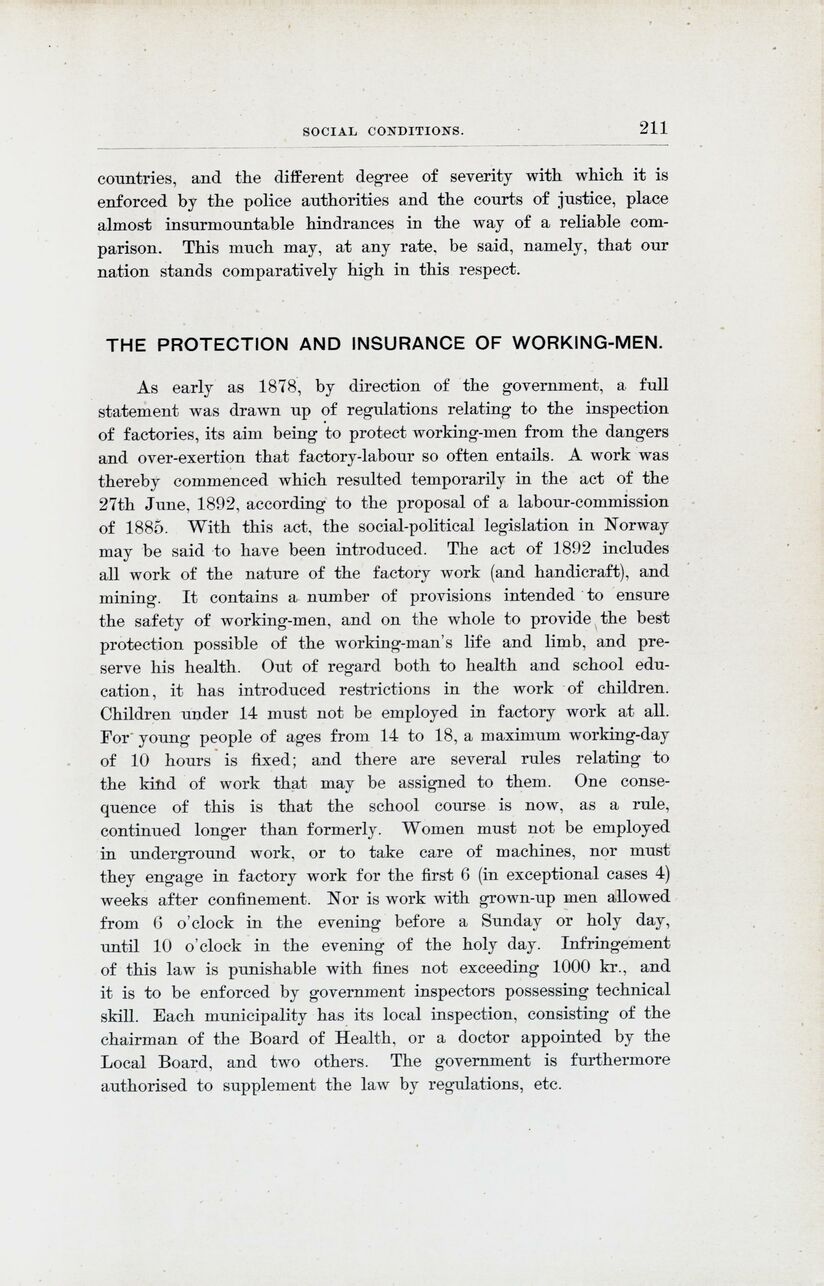
Full resolution (JPEG)
- On this page / på denna sida
- Social Conditions, by H. E. Berner

<< prev. page << föreg. sida << >> nästa sida >> next page >>
Below is the raw OCR text
from the above scanned image.
Do you see an error? Proofread the page now!
Här nedan syns maskintolkade texten från faksimilbilden ovan.
Ser du något fel? Korrekturläs sidan nu!
This page has been proofread at least once.
(diff)
(history)
Denna sida har korrekturlästs minst en gång.
(skillnad)
(historik)
countries, and the different degree of severity with which it is
enforced by the police authorities and the courts of justice, place
almost insurmountable hindrances in the way of a reliable
comparison. This much may, at any rate, be said, namely, that our
nation stands comparatively high in this respect.
THE PROTECTION AND INSURANCE OF WORKING-MEN.
As early as 1878, by direction of the government, a full
statement was drawn up of regulations relating to the inspection
of factories, its aim being to protect working-men from the dangers
and over-exertion that factory-labour so often entails. A work was
thereby commenced which resulted temporarily in the act of the
27th June, 1892, according to the proposal of a labour-commission
of 1885. With this act, the social-political legislation in Norway
may be said to have been introduced. The act of 1892 includes
all work of the nature of the factory work (and handicraft), and
mining. It contains a number of provisions intended to ensure
the safety of working-men, and on the whole to provide the best
protection possible of the working-man’s life and limb, and
preserve his health. Out of regard both to health and school
education, it has introduced restrictions in the work of children.
Children under 14 must not be employed in factory work at all.
For young people of ages from 14 to 18, a maximum working-day
of 10 hours is fixed; and there are several rules relating to
the kind of work that may be assigned to them. One
consequence of this is that the school course is now, as a rule,
continued longer than formerly. Women must not be employed
in underground work, or to take care of machines, nor must
they engage in factory work for the first 6 (in exceptional cases 4)
weeks after confinement. Nor is work with grown-up men allowed
from 6 o’clock in the evening before a Sunday or holy day,
until 10 o’clock in the evening of the holy day. Infringement
of this law is punishable with fines not exceeding 1000 kr., and
it is to be enforced by government inspectors possessing technical
skill. Each municipality has its local inspection, consisting of the
chairman of the Board of Health, or a doctor appointed by the
Local Board, and two others. The government is furthermore
authorised to supplement the law by regulations, etc.
<< prev. page << föreg. sida << >> nästa sida >> next page >>
Project Runeberg, Tue Mar 11 10:44:48 2025
(aronsson)
(diff)
(history)
(download)
<< Previous
Next >>
https://runeberg.org/norparis/0223.html



